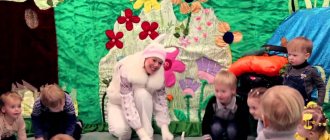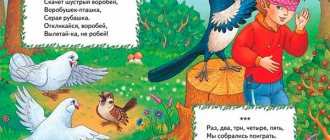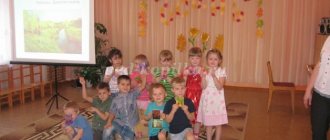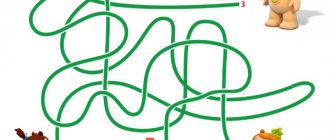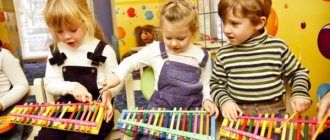Brownie – Taurus (April 21 – May 21)
If you have a Brownie in your apartment, don’t despair, consider yourself very lucky, you bought a Taurus, and a Golden one, for cheap. Take a deep breath and don’t breathe anymore, think about material things, don’t ask yourself the stupid question every day: “Where did the money go?” When money appears in the house, it is immediately stored in a reliable bank, which you cannot get to without a good reason or petition. It’s better to think about something spiritual, for example, about the soul, because Domovoy, although caring and practical, is an evil spirit, and a hectic life awaits you. The brownie is jealous, stubborn, selfish, unyielding in disputes, so it is better to silently agree to everything. The situation is especially unenviable when you moved in with your Domovoy samovar, but the previous residents did not take their Domovoy, and you do not have an address to express everything you think about them. You will have to live in hell for some time. The house will become unbearably hot, you will be accused of all mortal sins, beating, pricking, cutting household items will fly around, you will be tormented by insomnia and otherworldly dark voices that tediously find out who is boss in the house. If you thought this concerned you, relax and take your mind off things.
Video: lesson notes.
Most of the activities for preschoolers are educational and also contain elements of art, familiarization with the environment, and, of course, physical exercises (dynamic pauses) and games.
Many works are located in several sections of this section at once, since they combine several areas. So, for example, classes in art are a general section, while classes in drawing or modeling are specific categories. However, when publishing, it is advisable to indicate all categories of headings related to your material for a more convenient search. Additionally, we suggest filling out sections that sort notes by topic. Then, when preparing a lesson with your children, you can use ready-made lesson notes. For example, in the “toy topic” section, you can find all activities related to toys in one way or another.
If you want your entry to be included in this section, when publishing, select the “ class notes”
,” and additional subsections.
All sections
Structure of classes with preschool children
How to write a resume for a student without work experience
Teaching preschool children
is visually effective. The child acquires new knowledge on the basis of direct perception, when he watches the teacher’s actions, listens to his explanations and instructions, and acts with the didactic material himself.
“Tell me and I’ll forget, show me and I’ll remember, let me do it and I’ll understand.”
(Confucius)
The lesson begins not at the desks, but with the children gathering around the teacher. In younger groups, children can, for example, sit on chairs in a semicircle in front of the teacher.
Lesson structure at a younger age
1. Introductory part. Classes often begin with game elements, surprise moments - the unexpected appearance of toys, things, the arrival of “guests” or fairy-tale plots. This interests and activates the kids. (3 – 4 min)
2. The main part of the lesson. Learning new material or consolidating previously learned material. This stage occurs using a didactic game and working with handouts. (8 – 10 min)
3. Summing up. Be sure to praise the children for the work they have done. (2 minutes)
In the middle of the lesson, you should do a physical training session.
Class structure in middle age.
1. Introductory part. Classes begin with a didactic game, surprise moments, a problem situation, artistic expression (2 - 3 min.)
2. Studying new material (10 - 12 min).
3. Repetition of previously studied material (4 – 6 min).
4. Summing up. In the middle group, at the end of the lesson, the teacher himself sums up the lesson, introducing the children. (“What did we learn new today? What did we talk about? What did we play?”). (2 – 3 min)
After studying new material, it is advisable to conduct a physical training session.
Structure of classes at older ages.
Option 1.
1. Introductory part. Checking children's readiness for class. Creating interest in the lesson (2 - 3 min)
2. Repetition to introduce children to a new topic. A group of children usually sits at desks in twos, facing the teacher, as they work with handouts and develop learning skills. (3 – 5 min.)
3. Consideration of new material. In older groups, it is advisable to use problem situations. (12 – 15 min)
4. Repetition of learned material. (5 – 7 min.)
After studying new material, you should do a physical training session.
Option 2.
- Organizing time.
- Continuation of work on studying a new topic.
- Continued study of immediately preceding material or its consolidation.
- Repetition of what was previously covered.
- Summarizing.
The gradual increase in complexity of program material and methodological techniques aimed at mastering knowledge and skills allows children to feel success in their work, their growth, and this, in turn, contributes to the development of their increasing interest in their studies.
REMEMBER!
The leading activity in preschool age is play.
. During classes, use didactic, developmental and outdoor games.
Common model for starting a lesson
The organizational aspect of a lesson in elementary school is part of the generally accepted model of organizing lessons with children. Despite the presence of a large number of examples of the traditional introductory part, modern teachers prefer to move away from it, giving preference to the creative involvement of children in the educational process.
However, when getting to know your students (the first 2-3 months of teaching a new class), it is recommended to use a basic lesson plan to give younger students a chance to become accustomed to their environment without having to be creative in their first days of school.
The generally accepted model of the beginning of a lesson is an organizational moment for introducing, greeting and shaping the mood of students.
It usually consists of several stages:
| Organizational moment stage | Short description |
| Mutual greetings to those present in class | Children get to know not only the teacher, but also each other. By greeting each other, they master the rules of etiquette and learn to be attentive to the people around them. |
| Roll call | Usually carried out in a playful way. For example, the teacher calls the student’s last and first name, and the child must answer that he is in class, while calling himself the way he wanted other children to address him. Roll call creates a comfortable environment for further interaction between children and the teacher. |
| Checking readiness | At this stage, the teacher should list out loud to the children the items that will be needed in the near future. After voicing the list, it is necessary to give the children time to get from their briefcases what is currently missing from their desks. |
| Assessing the state of the classroom and your workplace | Before conducting a lesson, the teacher must make sure that the environment in the classroom contributes to the formation of children's concentration on the learning process (the sun does not shine in anyone's eyes, no one is blowing, chairs do not wobble, and so on). In addition to assessing the environment, the teacher is recommended to check the availability of the necessary things for further classes on his desk, so that during the remaining time of the lesson there are no delays due to the fault of the teacher. |
| Formulation of the lesson topic and explanation of the lesson progress | It is important for children who find themselves in a new environment to understand what will happen to them in the near future. Having learned the topic of the lesson, as well as having received a kind of instruction for further actions, it will be easier for students to follow the teacher and his train of thoughts, and the transition between the main stages of the lesson will not cause them difficulty or loss of concentration. |
Goblin - Gemini (May 22 - June 21)
Wildly changeable nature, shampoo and conditioner in one bottle. Three minutes ago, Leshy gave you a headache and gave you heat in the land of coal, which was not how they stood, whistled, picked mushrooms, and now it carefully blows coolness, like an air conditioner. What if you started sweating while you were sorting things out with him? Because in order to sort things out with Leshy, you need angelic patience, a sense of humor and a lot of free time. To listen to Leshy, everyone except him has arms, legs, and heads growing from the wrong place. You’ll have to turn your skin inside out, change your right shoe for a left one, your left one for a right one, and guiltily walk away on business so that Leshy will spare you and not talk about twelve hours a day on any freely given topic. Don’t sit on a tree stump, don’t eat the pie - he’ll talk too much, make you confused, and choke on the pie. The goblin has three gifts: the gift of speech, the gift of deeds and the gift of tediousness, and gives them away for free. Ruled by the fleet-footed Mercury, Leshy is as mobile as mercury, running around, flickering around, peddling a useless decoction of freshly dug moss. Better than him, no evil spirits can clutter up and quickly turn a normal, spacious forest into a slum. The goblin does not lie, but plays with his imagination, does not confuse his tracks, but jokes, does not plot, but has fun, is not late, but lingers. Therefore, he is an excellent politician, an intriguer and a talented critic of everyone and everything, but, like Vodyanoy, he is not appreciated in his native forest.
Nightingale the Robber – Aquarius (January 21 – February 18)
How to write an essay: learning without mistakes
Lazy, friendly, irresponsible evil spirits, prefers to sit on the branches and constantly whistle at you. The nature is airy, flutters through life, pours water into its mill, successfully spinning the wheel of fortune. He knows very well what, to whom and when to whistle with a dashing brave whistle so that the victim’s ears are blocked, she loses orientation in space, gives up her horse, throws down her weapon and blows in different directions. Most often, the Nightingale the Robber chooses the creative professions of the pen and the axe. The evil spirits are charming to the point of trembling in the knees, optimistic, sociable, pouring out like a nightingale, so you are tormented by vague doubts, maybe this is not a highwayman, but Robin Hood, who abandoned the comforts of home in order to give freedom and freedom to an unsuspecting traveler. Nightingale the Robber is inquisitive and compassionate, he will carefully check how far you have been blown by the wind, how many arms and legs you have broken, how much food and uneaten food you have left in your knapsack. Evil spirits are generously gifted by nature, but they do not have time to develop their numerous talents, everything goes to waste. Creative, but in an eternal search, she easily builds castles in the air, and easily destroys them in front of the amazed public.
Kashchei the Immortal – Capricorn (December 22 – January 20)
The nature is integral, stubborn, ambitious, fireproof, waterproof, bulletproof and strong-willed. It’s about him that they tenderly say behind his back, “You show off, you’ll erase the figs, you little goat,” but in his eyes, sternly, “the salt of the Earth,” which is fair, it’s not sugar. The only evil spirit not prone to being overweight, but don’t risk calling it a walking soup set, it forgives offense if only you, a young eagle, are sitting in a damp dungeon and rattling your chains on your last breath. The leader and strategist takes full responsibility for the gold obtained in the struggle, over which he voluntarily withers. Values material values “just like that,” in a chest, and not for comfort. You can always cry into his shinbone, he is a pessimist, he will sympathize so much with your grief, radiculitis and a bunch of dental problems that you will immediately understand that it will be worse. Jealous, but restrained, he solves the problem of his headache radically - with your guillotine. He loves solitude with Vasilisa the Beautiful in the kitchen and with a dozen Ivanov-Tsareviches in the dungeon, because it is more fun to grumble, philosophize, be witty and appreciate everything beautiful in a pleasant company. A maniac and a gambler in everything, he is extremely patient, he can wait and catch up forever, he has time. Prefers to wear a casual suit that is soft, meek, white, fluffy, don’t be fooled, the bunny suit hides a duck, an egg, an iron character.
Organizational moment of a non-traditional lesson
A non-traditional lesson differs from a regular lesson in a number of characteristic features.
Among the main ones:
- unusual venue;
- the presence of new elements within the general school curriculum;
- combination of collective and individual work;
- attracting people with a similar type of activity within the framework of the topic being studied;
- use of video and audio materials;
- creative work;
- collective analysis of activities after the lesson;
- creation of an initiative group consisting of volunteer students participating in preparation for the upcoming lesson;
- combining the topic being studied with events that are relevant to a specific age group.
The organizational aspect of a lesson in elementary school may vary depending on the focus of the subject itself.
For example:
- Asking each person their gaze meets over the next 45 seconds to smile.
- After reading a independently invented fairy tale (for example, if the topic of the lesson is vowels and consonants, then you can start the lesson by telling students the story of how the letters “A” and “B” quarreled and how their relatives, divided into 2 camps, formed a generally accepted today the classification of Russian letters).
- By asking to find the sound, letter, root or ending being studied in a sentence (sentences must be used from famous films or cartoons that children know. This trick promotes parallel brain work in two directions - completing a task and associative reproduction of a moment from a famous work).
- Let them listen to a song related to the general focus of the material covered in class (for example, the song “Let’s Exclaim” will not only set children up for active work, but can also become an introductory part for further study of polite words).
- Having asked to give a compliment to any 3 people present so that the pleasant words begin with the letters given by the teacher (before expecting children to complete this task, the teacher needs to show by example what is required of them. This will not only make the task easier for younger schoolchildren, but also will liberate them and make the teacher a little “closer” to them). After the organizational moment, you should smoothly move on to the main topic of the lesson, even during the main part of the lesson, referring to the pleasant emotions of the children when completing the introductory task.
- Sayings or sayings (it is necessary to select a proverb so that its meaning is clear and interesting for discussion by children of a particular age. As soon as the teacher, after reading folk art, makes sure that each student understands the meaning of what was voiced, it is necessary to invite the children to formulate their point of view on this score, using arguments that are objective, in the child’s opinion. Usually such discussions turn into a discussion, which not only sets the necessary pace and dynamics of the lesson, but also teaches children how to correctly convey their opinions to others).
- Visualization (the teacher invites the children to take a journey through the autumn forest. Moving through the forest, the teacher tells the students out loud what surrounds them, using as many artistic and stylistic expressions as possible in his story).
- Meditation (the teacher, turning on pleasant sounds of nature in the background, asks the children to relax, close their eyes and repeat after him the psychological attitudes associated with further activities. For example, “now I am as attentive as possible and focused on studying. I want to gain new knowledge, and I am happy , that I will now have such an opportunity” and so on).
- Children's imagination (for example, after reading the poem “Winter is angry for a reason ...”, the teacher should ask students to come up with their own story related to how, in their opinion, spring usually comes into its own, where the snow and cold winds disappear). When using the above techniques should not constantly correct children. It is more important to let them understand that, having the skill of reading, the limitless world of fiction will open to them.
Another option for a non-standard lesson could be an activity - a journey, during which children, under the guidance of a teacher, “fly” on an imaginary plane (the ideal would be the presence of decorations, handing out booklets to passengers of the aircraft, and so on) across different hemispheres of the Earth, or suddenly everyone turns into astronauts and will visit outer space, simultaneously studying how the planet on which humanity lives and the celestial bodies located millions of kilometers from the Earth works.
A teacher’s non-standard approach to instilling in children attentiveness to the events of the past can become more effective if they explain to students the need to understand the history of not only their own people, but also people all over the world (knowing what the mistakes of the past led ancient people to, it is now necessary to do everything to avoid their repetition).
Children's attention to history will also be attracted by organizational aspects drawn up in the style of:
- interview (children are asked to imagine what they could do “back in time”);
- theatrical performance (it is recommended to avoid long productions, as children in primary school quickly lose focus and attention to the event);
- introductory part to “Brainstorming” (in advance of the start of such a lesson, children must be given the task of learning the events of a specific historical period. Class students are divided into 2 or 3 teams. The team that gives the most correct answers in the quiz receives a medal or cardboard cup).
Serpent Gorynych - Aries (March 21 - April 20)
The unrelenting energy of the ruling planet - Mars influences the poor animal with such force that everyone around him runs around with burnt holes and smells of burning
Therefore, his undying care and attention, like himself, is difficult not to notice. He burns with all parts of speech honestly and straightforwardly, but it would be better to remain silent. Serpent Gorynych is impulsive, he should count to thirty and think carefully with each of his heads before flying and creating, destroying everything to the ground
He cannot try on someone else’s skin; not a single skin can fit such a large-scale personality. Therefore, this is crawling, flying, sleeping and flame-throwing self-confidence, exorbitant pride and the ultimate truth. An ardent supporter of polite dictatorship and tactfully imposing his own opinion with targeted fire, but will not be the first to get into a fight. Each barrel contains a massive plug that seeks to control the owner of the barrel, the drink, and the barrel. Thinks globally, on a grand scale, greatly exaggerating facts. If you are sick all over, then three at once; if you have eaten one knight with the appetite, you swear that you have eaten a dozen.
